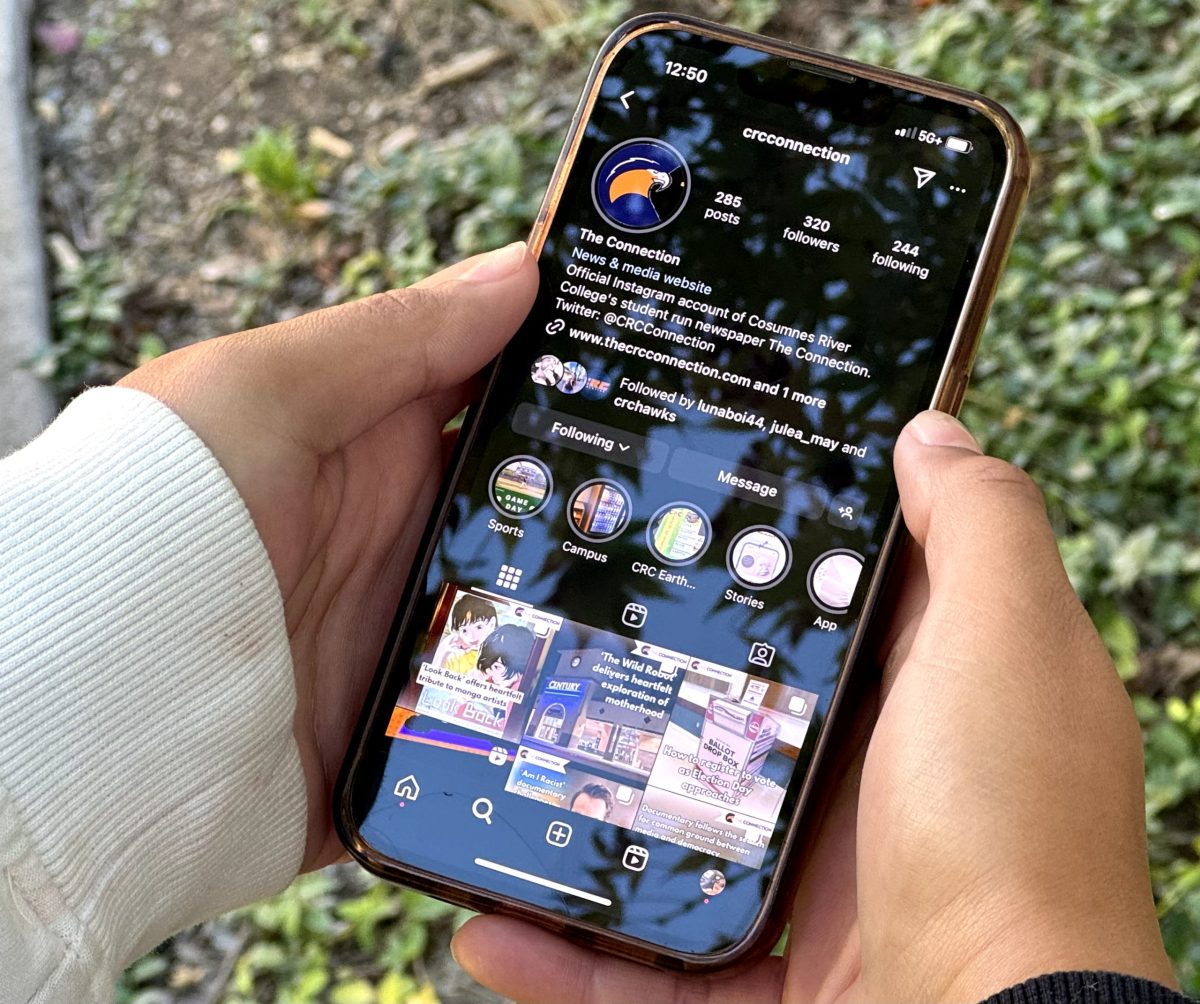According to a study published by Pew Research Center on Sept. 17, more than half of adults are more likely to consume news on social media, with 52% of TikTok users reporting the platform as their main source of news, up from 22% in 2022.
X, formerly known as Twitter, leads the social media platforms as a news source for younger adults, reporting 59% of their users regularly receive news on the platform. Students at Cosumnes River College discussed the experiences they’ve had consuming news and using social media regularly.
Tyler Reed, a 26-year-old computer science major, said he gets a glance of Apple News that arrives in his email’s inbox. He said he can trust the news he gets, which has more of a “centrist-modernist” take, but he knows he has to do his research on it because he doesn’t know their original source material.
“Usually the articles they pull are from, like, The Atlantic or, you know, The New York Times and whatnot, so it’s not The Daily Wire or anything like that,” Reed said.
Being able to verify a paper trail or corroborate a study with other sources is a key factor in deciding whether or not to trust a news outlet, Reed said. Filtering out fear-based content is something he said he has to do everyday.
“The best part about social media for me is the social part,” said Anthony Knickerbocker, a 19-year-old biology major. “It doesn’t have to be news.”
Knickerbocker said the younger users can see the blatant deception, but it might be more difficult for older users to recognize.
He said he occasionally checks the “actual news” on television because he is around his mother while she watches cable news.
Madison Muldrew, a 22-year-old veterinary technology major, said she doesn’t look at the news very often, but when she does, she is usually watching a local news channel’s TikTok account. She said her grandmother gets her news from YouTube and Facebook, but the content consumed is mostly gossip.
Twenty-one-year-old Analisa Anderson, a biology and chemistry major, said TikTok is more of an entertainment platform with information “sprinkled in.”
Anderson said if she needs to do more research on something she saw on social media, she usually uses Google.
“I would say I trust it,” Anderson said. “I’m drawn to it because the content is short and you can 2x the speed.”
Seventeen-year-old Hope Joseph, an undeclared major, said she usually gets her news and information from word of mouth. She said she doesn’t pay attention to news online much.
Reed said polls can be helpful to get an idea of the support a candidate is receiving, but he said it seems as if the polls are trying to paint a picture of something that hasn’t happened yet.
“It’s hard, especially if you’re not checking it, it’s hard to tell if they’re cherry picking facts from certain polls or certain whatever,” Reed said. “So, if I’m not careful or if anyone’s not careful, they can just lead you under the assumption that this person is going to win or this person doesn’t have a chance, so you have to be vigilant in what you are reading.”
Habiba Merzada, a 21-year-old biology major, said she doesn’t have a Facebook or TikTok, but she uses Instagram and finds it quite useful.
Merzada said social media can be a trusted source, but not everything you see is true.
“It’s just kind of wild. I’m kind of worried for what the world has become because of how things are right now,” Joseph said.

